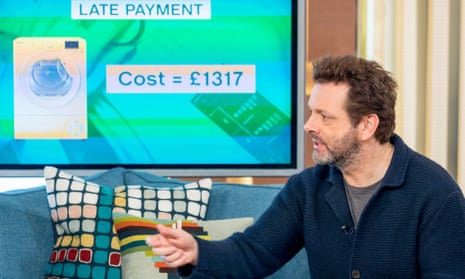Actor Michael Sheen has called on the government to ensure that Wonga is sold to an ethical lender, and warns that customers of the collapsed payday firm are at risk of being scammed.
Sheen, who started publicly campaigning against high-cost lenders in March, said the fact that Wonga has gone into administration presented an opportunity to bolster “fair and responsible” competitors – such as credit unions as well as new ethical lending startups.
Speaking to the Observer, he said ministers must intervene to protect customers who still owe money to Wonga by ensuring they are transferred to an ethical provider, with their repayment terms either the same or improved. These providers could also include community development finance institutions and employer-based lending, but provision from high-street banks should be widened as well.
Sheen said that, with growing levels of personal debt across the country, the government should do more to support the development of lower-cost lenders.
Wonga collapsed into administration last week after a flurry of compensation claims over improper sales practices, with an estimated 200,000 customers still owing more than £400m in short-term loans. Borrowers have been told to keep making their payments as usual despite the collapse.
“The real danger is that those customers are going to turn to possibly even worse places,” Sheen added. “There is an opportunity here to support fair and responsible credit providers and help them grow big enough to handle the amount of people that were going to Wonga before.”
He warned that unscrupulous companies and fraudsters would attempt to exploit Wonga customers by pretending to be from the group, and that other high-cost lenders could also move in to tempt them with loans.
“A lot of people are going to be looking to exploit those customers,” he said. “A lot of borrowers won’t necessarily know who to go to for credit now. And there is, of course, often an association between mental health issues and debt.”
Wonga, which before its humiliating demise became a symbol of the household debt crisis sweeping Britain, was placed into administration when its owners decided it could not remain solvent.
Administrators from accountants Grant Thornton are expected to sell either the whole company or parts of its loan book to another lending firm. Although there are likely to be many vulnerable borrowers with precarious finances and potential health issues among its customers, the administrator is under no obligation to find a responsible buyer. The aim of putting a failed firm into administration is to recover as much money as possible for its creditors. “It’s really finding someone that can pay their way, rather than a buyer with any ethical sensibilities,” said Tim Symes of London law firm DMH Stallard.
Poverty campaigners have warned that British households will continue seeking payday loans despite the collapse of Wonga, as tough economic conditions force people to continue borrowing to make ends meet.
According to the charity StepChange, about one in seven people in the UK borrowed money to meet a household need last year, with around 1.4 million resorting to high-cost credit providers. Sheen blamed austerity and benefit cuts for driving people towards damaging levels of debt, which he said had a massive impact on communities. The state would ultimately have to help pay for that damage through greater spending on public health and services.
“Look at the results of austerity: the cutbacks in public services, the cuts to welfare benefits. All of this stuff adds up,” he said. “With a wage squeeze that has been the worst since the Napoleonic wars, people are unable to pay for basic things.
“It’s not just an issue to do with loans and debt – it’s about how much it costs for public services to pick up and address the wider cost of what people are having to deal with.”
The Welsh actor, who has played Tony Blair in three films since 2003, as well as Brian Clough in 2009’s The Damned United, said supporting ethical lenders should become a priority for the government. In March, Sheen started the End High Cost Credit Alliance, a campaign group of politicians, charities and tech companies aiming to promote more affordable borrowing. “There’s a lot to be learned from the Wonga example,” he said. “We have to find ways to get the government to support smaller companies through low-cost capital, while also helping them with high-profile marketing.”
